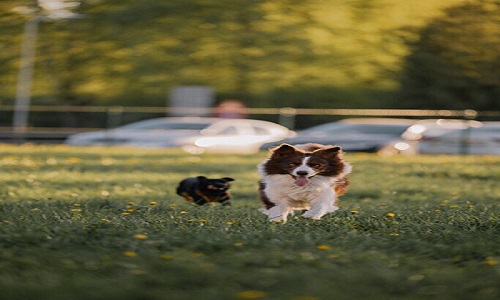The cost of retired breeding dogs can vary widely depending on many factors, such as the breed of the dog, the dog’s age, health, and temperament, and the location and reputation of the breeder.
Retired breeding dogs may be less expensive than younger ones because they no longer produce litter and may have fewer years of active breeding left.
However, some breeders may charge a premium for retired dogs if they are exceptionally well-bred, well-trained, or have a strong pedigree.
Why Do Breeders Retire Dogs?
Breeders may retire dogs for various reasons, including the following:
Age
- As dogs age, they may experience health problems or have a reduced ability to produce healthy litters.
- Breeders may retire older dogs to ensure their well-being and quality of life.
Health
- Some dogs may develop health issues that prevent them from breeding or require special care.
- In these cases, breeders may retire the dog and find them a loving home.
Temperament
- Breeding dogs with a good temperament is essential to producing well-adjusted puppies.
- If a breeding dog develops behavioral problems or is not temperamentally suited to breeding, a breeder may retire them from the breeding program.
Over-breeding
- Overbreeding a dog can lead to health problems, stress, and reduced fertility.
- Responsible breeders may choose to retire a dog with multiple litters to ensure their long-term health and well-being.
Personal choice
- Sometimes breeders may retire a dog simply because they want to give them a comfortable and happy retirement with a loving family.
What is a reasonable price for a retired 7 years old breeder bitch?
The price for a retired 7-year-old breeder bitch can vary depending on several factors, including the breed, the dog’s health, temperament, pedigree, and the breeder’s location and reputation.
Typically, retired breeding dogs may be sold for less than younger ones, but the exact price will depend on various factors.
Some breeders may charge a nominal fee or even offer the dog for free to a good home, while others may charge a higher price if the dog has a valuable pedigree or exceptional qualities.
As an estimate, the cost of a retired breeding dog could range anywhere from a few hundred dollars to a few thousand dollars.
However, it’s important to note that the most important consideration should always be the welfare and future of the dog.
Therefore, it’s recommended that you choose a reputable breeder who prioritizes the well-being of their dogs and has a good track record of responsible breeding and care.
Do Retired Breeding Dogs Make Good Pets?
- Yes, retired breeding dogs can make excellent pets! Many retired breeding dogs are well-trained, well-socialized, and have a lot of love to give to their new families.
- Retired breeding dogs are typically older and have already lived a life dedicated to breeding.
- They may have a calm temperament, be well-behaved, and be accustomed to living with people and other dogs.
- They may already be house-trained and have basic obedience training.
- Retired breeding dogs may have different needs than younger dogs and may require additional care or medical attention due to their age or previous breeding history.
- They may also need time to adjust to their new home and family.
- However, retired breeding dogs can make wonderful and loyal companions with patience, love, and proper care.
- Suppose you’re considering adopting a retired breeding dog. In that case, choosing a reputable breeder who can provide you with information about the dog’s health history, temperament, and any special needs or requirements is important.
- It would help if you also got to know the dog and ensured it fits your lifestyle and family well.
Pros and Cons of Retired Breeding Dogs:
Here are some pros and cons of adopting a retired breeding dog:
Pros:
Well-trained:
Retired breeding dogs are often well-trained and well-socialized, as they have already lived with people and other dogs.
Calm temperament:
Older dogs may have a calmer temperament than younger dogs, making them a good fit for families with children or older people.
Loyalty:
Retired breeding dogs may be more loyal and affectionate than younger dogs, as they have already developed a bond with their previous owner.
Good health:
Responsible breeders typically ensure that their breeding dogs are healthy and well-cared for. Such retired breeding dogs may be in good health.
Lower energy:
Older dogs may have lower energy levels than younger dogs, making them a better fit for households with a more relaxed lifestyle.
Cons:
Medical issues:
Older dogs may require additional medical care and attention due to age, previous breeding history, or health issues.
Adjustment period:
Retired breeding dogs may need time to adjust to their new home and family, as they may have been used to a different routine and environment.
Shorter lifespan:
Older dogs may have a shorter lifespan than younger dogs, which can be difficult for some families to cope with.
Limited training:
While retired breeding dogs may be well-trained, they may have received a different level of training than dogs in other stages of life.
Unknown background:
While breeders can provide information about a dog’s health and temperament, the dog’s previous history and experiences may be unknown.
How Difficult Is It to Find A Retired Breeding Dog?
Finding a retired breeding dog can be challenging, as not all breeders retire their dogs, and those that do may have a waiting list of interested adopters.
However, finding a retired breeding dog with some effort and patience is possible.
- One way to find a retired breeding dog is to contact local breeders and inquire about their retirement program. Many reputable breeders have a retirement program and will happily discuss their process with you.
- Another option is to check with breed-specific rescue organizations or shelters. These organizations may have retired breeding dogs available for adoption, or they may be able to refer you to breeders who retire their dogs.
- Networking with other dog owners and breed enthusiasts is also a good idea. They may know breeders or rescue organizations with retired breeding dogs available for adoption.
Conclusion
The cost of a retired breeding dog can vary depending on several factors, including the breed, age, health, and location of the dog. While some breeders may offer past breeding dogs for a nominal adoption fee, others may charge several thousand dollars.
It’s important to research and compare prices and ensure the dog’s cost aligns with its health and overall value as a companion. Adopting a retired breeding dog can be a rewarding experience for those looking for a well-trained and loving pet.




